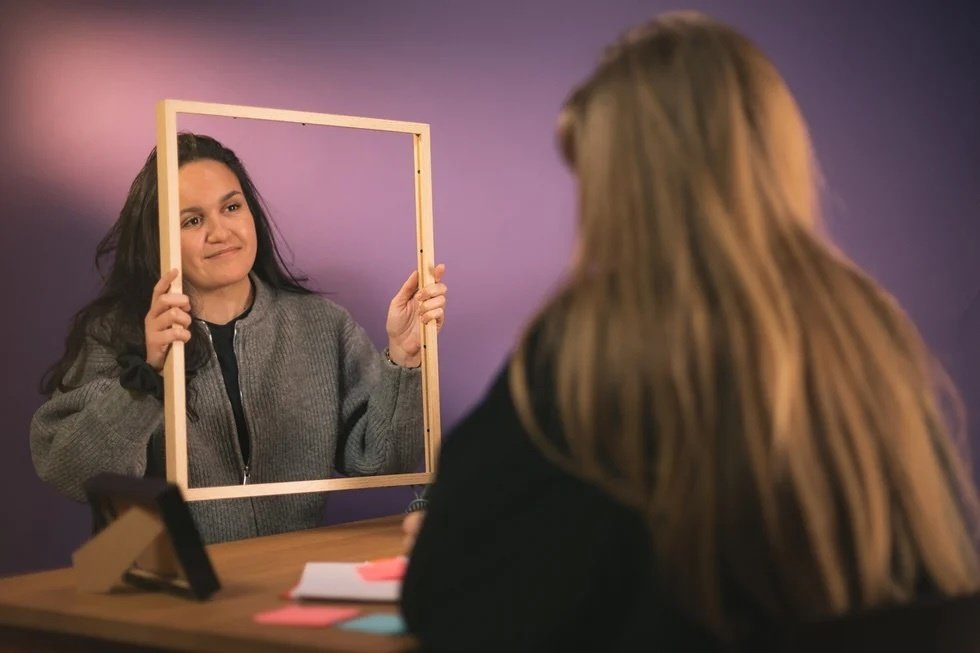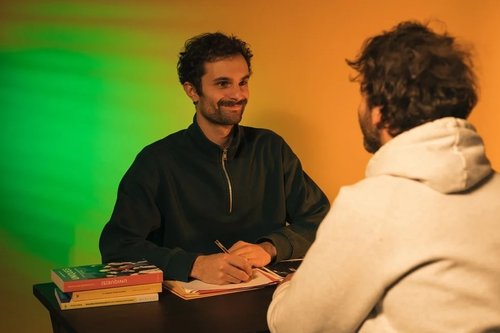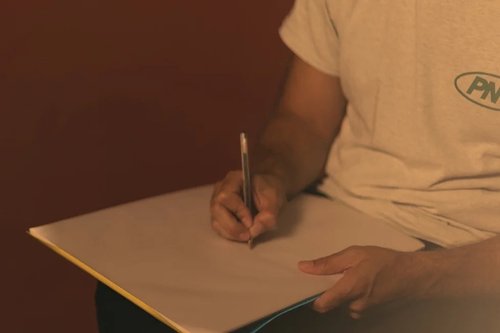How to wow a CEO during your interview
Apr 18, 2024
4 mins


Journalist
Going into any interview is daunting, but when the interviewer is the company’s CEO, the pressure can feel even greater. So, what are the answers that CEOs are really looking for when interviewing potential candidates, and what questions are they asking? While your resume will land you an interview, the most successful candidates reveal their personalities, life-changing experiences, failures, and triumphs during the interview process. It’s less about getting the answer right, and more about sharing the journey that brought you to their door.
Nailing an interview with a high-level executive is more about showing them who you are, why you’re there, and what you can do. But what does that mean? To find out, we spoke with founders Joti Balani, of Freshriver.ai, and Steve Shuhet, of Cresting Wave, to dig deeper into what CEOs are looking for during the interview process and the questions they ask to find it.
Preparation equals performance
One of the most important steps happens before the interview even starts: preparation. Shuhet’s company, Cresting Wave, works on bringing new solutions to companies across all industries. When he’s hiring, he’s primarily looking for salespeople. Due to the vast amount of information available online, there’s no excuse for arriving unprepared for a job interview.
“Coming prepared is very important to me. If you come and don’t know about my company, or you don’t know about what our initiatives are and what our challenges are, then to me, you’ve come unprepared,” says Shuhet. “It would be one thing if you couldn’t get the information, it’s another thing if you just didn’t get the information.” Sometimes, lack of preparation is a dealbreaker.
Your story is important
Candidates may spend a lot of time crafting “perfect” answers to questions and trying to say what they think the interviewer wants to hear. In reality, executives are likely looking to learn more about candidates’ stories, and real-life experiences that demonstrate leadership, passion, and perseverance.
Balani founded Freshriver.ai to help companies tackle problems by using conversational AI and as artificial intelligence takes up more space in the workplace, the human element has never been more important. “When I have these conversations with potential candidates, the first question I ask them is, ‘tell me your story,’ says Balani. “So I give them the very first 10 minutes to talk about their journey, and I tell them, you can go as far back as you want. I don’t want to read off of their resume”.
According to Balani, when someone starts telling their story, they reveal a lot about themselves. Since she always starts by telling her story, the idea is to make it like a conversation; two people sharing experiences and seeing whether there’s common ground or not.
“As they start to talk about themselves, the things I’m looking for are what drives them and what’s their passion,” says Balani. “I do believe in the power of the Japanese term Ikigai, which is that intersection of what you love to do, what the world needs, what will make you money, and what you’re good at.” It’s pulling on threads in the story that reveal how a person sees themselves and how they view themselves relative to other people, Balani explains. Do they have a team mentality and work toward the purpose of a higher mission?
Shuhet always asks open-ended questions to facilitate conversation. “The questions that I would typically ask are: ‘Tell me about your experiences in your previous jobs. Talk to me about your resume. Tell me what you did at this company. What roles were you in? What challenges did you face?” Even though the answers are meant to be open-ended, Shuhet is looking for particular qualities to shine through: diligence, overcoming obstacles, motivation, and stories of moving past failure.
Failure isn’t always a bad thing
When it comes to storytelling during an interview, your failures may not be the first things that come to mind when trying to impress a CEO. However, according to Balani and Shuhet, learning about a candidate’s failures—and how they overcame them—is crucial to the interview process.
“How you overcome that is important, because there’s no person that doesn’t face challenges in a business,” says Shuhet. “So, it’s about how you overcome things, because you’re going to gain clients and you’re going to lose clients… there are going to be things that are out of your control.”
Similarly, Balani believes that if the story you’re telling doesn’t include any instances of failure, it’s a problem. Still, she’ll try to bring it out of the interviewee, asking questions like “Was that a challenge for you?” or “Did you stand up for something that you saw?” to encourage the candidate and make them comfortable enough to discuss failures.
Honesty is essential
High-level executives have likely interviewed countless candidates in the past. Therefore, their eye for honesty—and dishonesty—is sharp. “The other thing I’m looking for is truth and honesty… I can tell pretty quickly if somebody is faking it, so I would say it’s much better to be honest and forthright,” says Shuhet. “I think too many people think that interviewers want to hear something that isn’t really the truth when in reality, I just want to hear about the person because the roles I interview for all revolve around personality, perseverance, and diligence.”
In the same vein, when Balani interviews candidates, she’s looking for a good fit that extends beyond being able to do the job. She wants someone passionate with personal motivations that align with the company’s, and the only way to convey this is through honest conversation. “I’m also trying to figure that out because frankly, without passion… you can work a job and say it’s only to pay the bills, but we’re looking for people who want to be part of something more meaningful,” she explains. “I’m almost like their psychologist… so in 30 minutes, I’m trying to figure out, is this really what they want?”
Photo: Welcome to the Jungle
Follow Welcome to the Jungle on Facebook, LinkedIn, and Instagram, and subscribe to our newsletter to get our latest articles every week!

More inspiration: Prepare for a job interview

Hybrid work goals: How to nail the negotiation in your next job interview
Want a hybrid work setup? Learn how to research, negotiate, and showcase the benefits of flexibility during your next job interview.
Dec 19, 2024

The secret to interview success? That annoying colleague
Got a story about a difficult coworker? Good! That office drama might just be your ticket to acing your next interview.
Dec 16, 2024

Is flexibility the key to “having it all” as a parent?
Balancing a career and parenthood can be challenging, but with the right approach, it’s possible to achieve both.
Oct 08, 2024

Slacker vs. control freak: What’s your interview style?
We’ve all been there: whether you're overly anxious or effortlessly cool—what best describes you?
Sep 24, 2024

Overcoming neurotypical norms during the job hunt
Neurodiverse individuals bring valuable innovation and should be more included in the workplace. How can we embrace their unique talents?
Sep 23, 2024
The newsletter that does the job
Want to keep up with the latest articles? Twice a week you can receive stories, jobs, and tips in your inbox.

Looking for your next job?
Over 200,000 people have found a job with Welcome to the Jungle.
Explore jobs